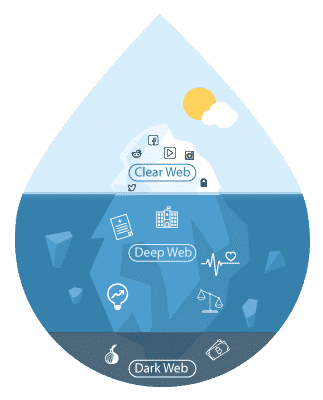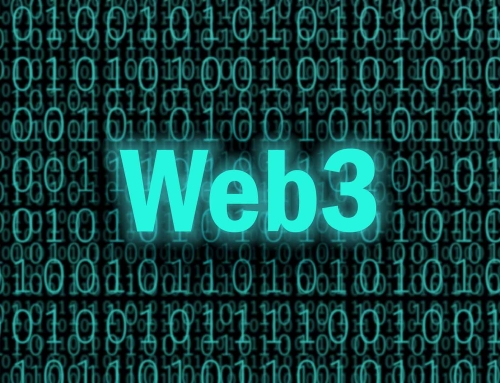What is the dark web? The good and bad of the Internet’s most private corner

You may have heard the dark web is a place for drug dealers and hitmen. That’s correct, but there’s more to it than that. In this article, find out what is the dark web, how to access it, and what you might find there.
The dark web is a part of the Internet that requires special software to access and is not indexed by search engines. It offers much greater privacy than the widely accessible parts of the World Wide Web.
That privacy also makes the dark web a setting for illegal activity, scams, and offensive content. The high-profile rise and fall of the Silk Road marketplace for illicit drugs is the best-known example of this. But despite the sensational media coverage, few people really understand what the dark web is or how it works. For instance, it might surprise some people to learn that The New York Timesand Facebook both maintain websites on the dark web.
The dark web isn’t “dark” because it’s bad; it’s dark because it’s the only place on the Internet that offers a bit of privacy. In this article, we’ll explain how that works, what actually happens on the dark web, and how you can check it out for yourself.
What is the dark web?
Think of the Internet as divided into three parts: the clearweb, the deep web, and the dark web.
The clearweb is the Internet most of us are familiar with. Its pages are searchable in Google, but it makes up just a small percentage of all the content on the Internet. The deep web comprises the majority of the Internet, but it is not indexed by search engines, it is often password-protected, and therefore it’s not generally accessible. The deep web includes things like financial databases, web archives, and password-protected pages.

The dark web is a small portion of the deep web. It runs on top of existing Internet infrastructure, but it is a parallel web that cannot be accessed without special tools. For this reason the dark web is sometimes referred to as the hidden web.
Websites on the dark web have domains ending in “.onion” and are sometimes known as onion sites. They’re called onion sites because of the kind of encryption technology they use to hide the IP address of the servers that host them. Websites on the dark web mask their data behind multiple layers of encryption (like the layers of an onion), and can only be accessed through the Tor network, which is a network of computers around the world maintained by volunteers. Because the routing is random and the data is encrypted, it’s extremely difficult for anyone to trace any piece of traffic back to its source.
How to access the dark web
Tor is the most popular dark web interface, with millions of users. There are a number of ways to access the Tor network, including via the Tor browser , the operating system Tails, or by installing Tor on your computer. ProtonVPN also provides one-click Tor access through the Tor over VPN feature. From there, you can browse the web normally as well as gain access to highly private and secure onion sites.
Unlike the regular web, however, even after you have connected to the dark web, it isn’t so easy to find websites. Dark web sites use randomly generated domains that aren’t easy to remember. The dark web is also difficult to index, meaning search engines are ineffective. There are a number of link directories, such as The Hidden Wiki, that attempt to catalogue the dark web. But because dark web sites change their domain frequently, you’ll find a lot of dead links. A typical onion site url looks something like this:
http://3g2upl4pq6kufc4m.onion/
Some special onion sites, though, have easy to remember domain names and also SSL encryption (URLs that start with “https” instead of “http”). For example, ProtonMail’s Tor encrypted email site is at https://protonirockerxow.onion while Facebook’s onion site is at https://facebookcorewwwi.onion. You can learn more about these special onion sites here.
What’s on the dark web?
The illicit uses of the dark web are well documented: assassination services, ecommerce sites for buying guns and drugs, and so on. It’s best to stay clear of anything that seems suspect while browsing there. However, there are plenty of 100% legal things you can do on the dark web. You can read ProPublica or The New York Times, check your email in ProtonMail, or browse your Facebook wall. All of these mainstream websites offer dark web access because of the benefits to privacy and freedom of information.
One of the biggest advantages of the dark web is the difficulty of blocking it. Common forms of censorship, which block traffic to websites at specific choke points along the Internet hierarchy, do not work with encrypted overlay networks. (As a result, some dictators have, for example, tried to block Tor itself.)
For similar reasons, the dark web is more resistant to surveillance by governments and corporations (such as Internet service providers). Whistleblowers, journalists, and other professionals at risk of targeted surveillance use the dark web to communicate sensitive information. And organizations including Human Rights Watch and the Electronic Frontier Foundation support the use of and access to the dark web.
One of the only drawbacks of the dark web is its speed. For instance, because Tor bounces your traffic through multiple servers around the world, it necessarily slows your connection. But when you need it, the dark web can be vitally important: When Turkey temporarily blocked ProtonMail for some users, our onion site was one of the only ways people could gain access to email.
So, there’s no reason to be afraid of the dark web. On the contrary, the dark web is an essential privacy tool. As governments work to weaken encryption with backdoors and corporations gain greater access to everything we do, privacy and security technologies like the dark web must be vigorously defended. And that starts with understanding them beyond sensational headlines.
Best Regards,
The ProtonMail Team
You can get a free secure email account from ProtonMail here.
We also provide a free VPN service to protect your privacy.
ProtonMail and ProtonVPN are funded by community contributions. If you would like to support our development efforts, you can upgrade to a paid plan or donate. Thank you for your support!











Leave A Comment
You must be logged in to post a comment.